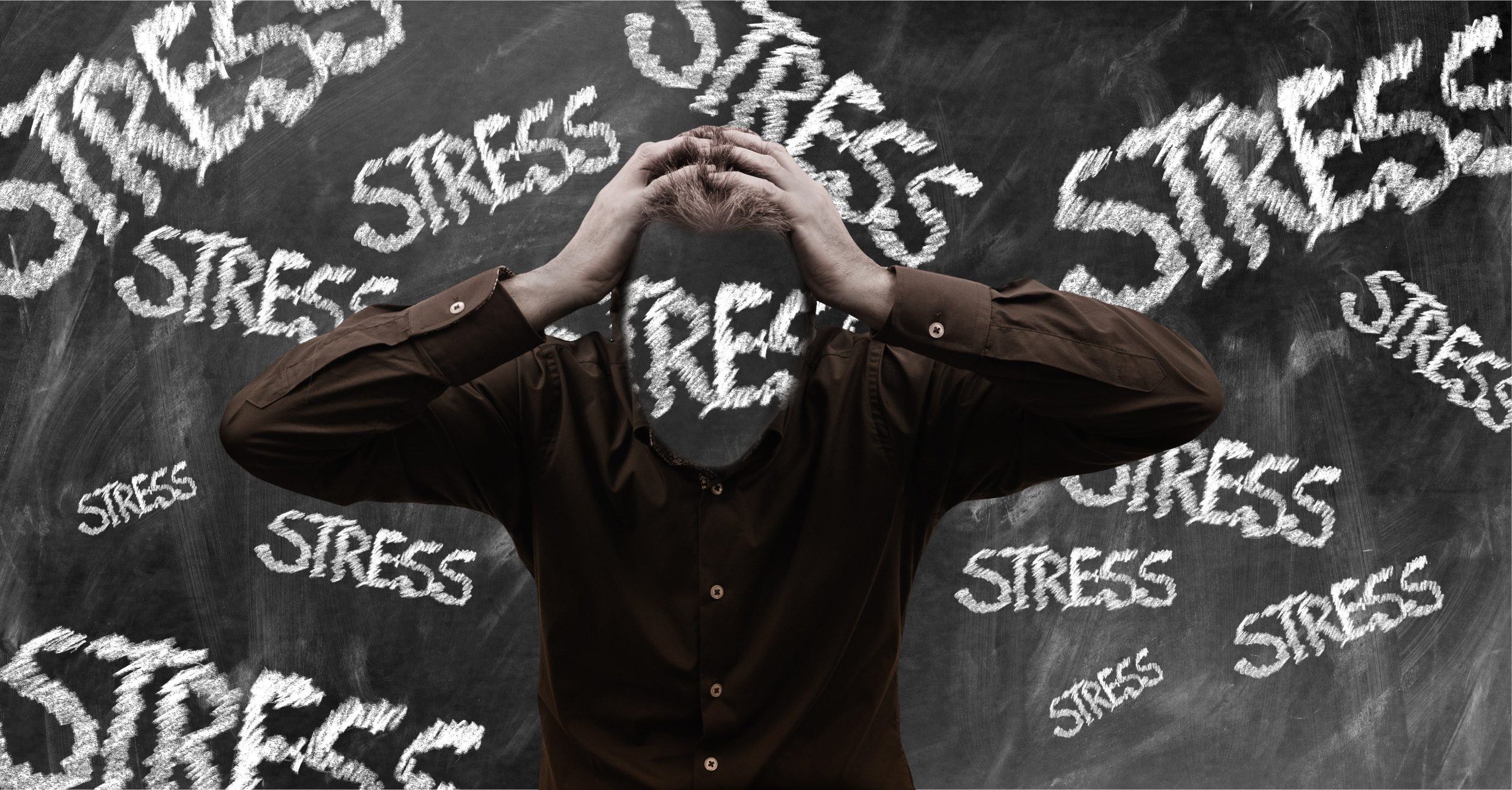In stress and anxiety, we often speak of mental load. But what is it? It is always having to think of everything, even when we are tackling another task. Concretely, that would be thinking about the duties of children when we work, or writing endless “to-do lists” that never end, being subjected to excessive hierarchical pressure that pursues us back home. We are not all equal: some can handle this overflow and tension easily, while others can quickly break down
Stress then arises because the body is under stress to which it must adjust. When it becomes chronic, the ability to adapt is overwhelmed, the internal balance is disturbed and consequences appear: sleep disturbances, metabolic disorders, depression, etc.
The danger is therefore late awareness. We only realize this burden when we collapse. In order to remedy this, we must spot these warning signs and act quickly.


But stress is not always negative. Indeed, we are confronted with several types of tension: positive stress corresponds to the alarm stage, it is spontaneous and involves the areas of the brain involved in managing emotions. It occurs when suddenly the body is under assault. It instructs the adrenal glands to supply enough adrenaline for a rush of blood and oxygen to power the muscles and increase the alertness of the brain.
But the resistance phase is triggered when this anxiety persists and the body needs a source of energy to manage it. This time he asks the same adrenals to deliver cortisol, the main virtue of which is to increase the level of glucose in the blood. Muscles, brain and heart are momentarily able to fight against stress.
Chronic or negative stress occurs when the body has used up all of its adaptive resources. A vicious circle takes place: the brain continuously triggers the production of cortisol in order to maintain internal biochemical balance. He finds himself deeply disturbed by this continuous flow, which consumes a great deal of energy. This results in a number of inconveniences such as excessive fatigue, poor immunity, affected sleep or the onset of insomnia, metabolic problems, eating disorders associated with weight gain or loss.
The excess cortisol released during prolonged stress will cause general fatigue in the body. It will destabilize the synthesis of neurotransmitters essential for well-being, in particular serotonin, involved in mood and pleasure.




Nous devons écouter notre corps et notre cerveau.Des pensées qui s’agitent, des difficultés à s’endormir, une fatigue le matin au réveil, et cette boule, au niveau du plexus solaire : autant de signaux que l’on doit savoir entendre. We must listen to our body and our brain. Fidgeting thoughts, difficulty falling asleep, fatigue in the morning on waking, and this ball, at the level of the solar plexus: so many signals that we must know how to hear .
In our modern life, we are constantly solicited by smartphone notifications. Who really goes offline and hasn't read their emails at home? And what about the anxiety-provoking news on the radio in the morning? The brain can no longer process this flow of information. Maintained on constant alert, brain capacity eventually becomes exhausted. To get out of this gear, the brain needs silence and rest: the holidays are too short, you have to act on a daily basis.
We need to understand the origin of this stress and soothe it, in particular with breathing techniques. We could first decipher the origin of this stress and fatigue and get rid of toxic habits and thoughts, stop feeling guilty if we fall behind or fail to do everything.
To calm those rushes of anxiety, there's nothing like walking in nature focusing on your breath. Also a yoga or meditation session allows you to focus the mind on the movements of the breath to better appreciate the present moment. But we don't always have the time to devote to it on a daily basis.
Cardiac coherence is a good solution. But what is it ? It is a personal practice of managing stress and emotions that teaches us to control our breathing in order to regulate our anxiety.
It is a special state of heart variability, that is, the heart's ability to speed up or slow down in order to adapt to its environment. It is a real physiological stress reduction technique. It can be obtained in several ways, but cardiac resonance is the simplest: 3 times a day, 6 breaths per minute and for 5 minutes. One can find apps on Android or IOS that allow you to focus on a bubble or flame that invites you to inhale and exhale.
Pour mieux gérer votre stress, faites confiance à des compléments alimentaires To better manage your stress, trust food supplements made to the highest quality standards. Also check the excipients, the absence of preservatives, or nanoparticles, and vegetable capsules…
Yunova® Pharma offers you Gababiotic®, Combination of four microbiotic strains (Bifidobacterium infantis, Bifidobacterium longum, Lactobacillus casei, Lactobacillus helveticus) and group B vitamins.
We also offer you Rhodiola (3% Rosavine) and organic Saffron (2% Safranal), concentrated in active ingredients in Nutrineural Zen.








